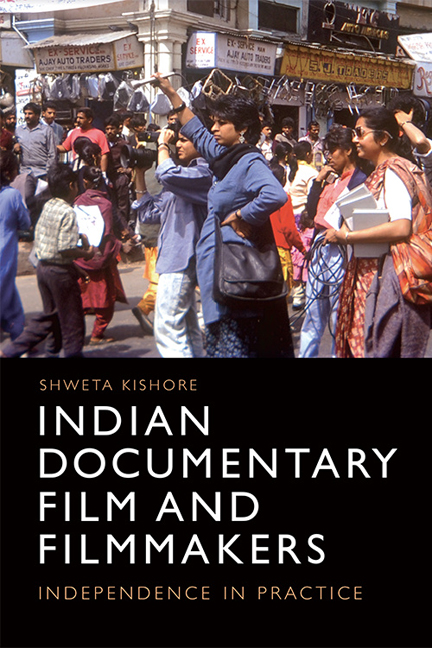2 - Method and Meaning
Published online by Cambridge University Press: 24 April 2021
Summary
It transforms another person's property into a space borrowed for a moment by a transient. Renters make comparable changes in an apartment they furnish with their acts and memories; as do speakers, in the language into which they insert both the messages of their native tongue and, through their accent, through their own ‘turns of phrase’, etc., their own history; as do pedestrians, in the streets they fill with the forests of their desires and goals. (de Certeau 1988: xxii)
Why do people make documentary films? Rather open-ended, this question is one that directly relates to the issues this chapter addresses. Discourses of activism and art are often attributed to independent Indian documentary defined in relation to thematic concerns, aesthetic treatment and spaces of circulation. Effectively, as a set of ideas and terminologies both discourses close off deeper analysis of the relation between documentary and the world by attributing notional functions and qualities to films, filmmakers and spectators. Instead, I propose a methodological framework that incorporates film content as one element in an inquiry that is equally interested in the work practices and social biographies of filmmakers as major functionaries of an independent documentary culture. By incorporating these additional sites in contiguity with representational inquiry, I hope not only to re-assess these discursive categories but to show that independent films constitute a form of response to the world that has the capacity to generate political meaning equally through methods of creation and circulation as with content.
The need for biographical methods arises from documentary studies’ narrow focus on critical textual analysis as the primary tool to access the complex nature of documentary's relation with the world. While axiographics, or the visible ethics of representation, positions the documentary filmmaker as the bearer of an involved gaze whose artistic decisions reflect a relation with the world, framed in textual terms any interpretation assumes the text as a stable set of aesthetic relations (Nichols 1991: 79). For instance, it is entirely possible that Nichols's concept of ‘accidental gaze’ predicated upon textual evidence of ‘accidentalness’ like ‘chaotic framing, blurred focus’ and the ‘sudden use of zoom lens, jerky camera movements’ may symbolise inexperience or formal experimentation in diverse viewing contexts (83).
- Type
- Chapter
- Information
- Indian Documentary Film and FilmmakersIndependence in Practice, pp. 47 - 76Publisher: Edinburgh University PressPrint publication year: 2018



